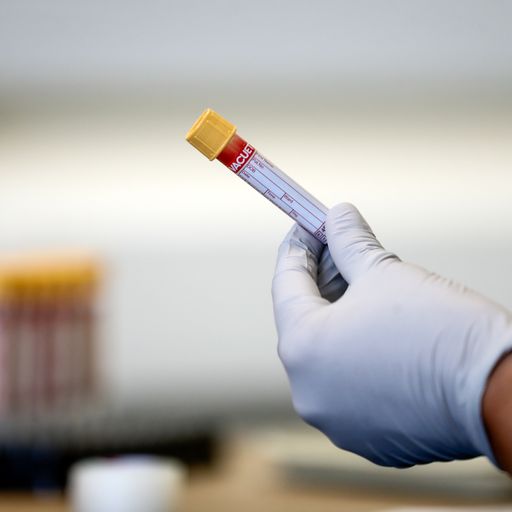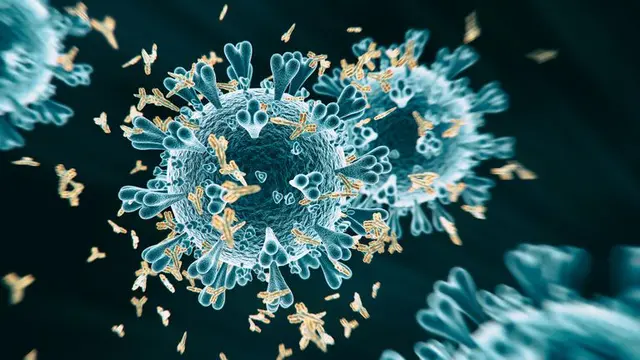People who recover from COVID-19 may have protective antibodies for up to four months, according to a new study.
Researchers at Harvard Medical School and the Massachusetts General Hospital aimed to determine how long immunity lasts in
coronavirus
survivors, and whether those infected with **COVID-19
** will develop lasting protection from the virus.
The study, published in Science Immunology, also focused on the body's immune response to COVID-19 and the team's findings suggested antibodies can be an accurate tool for tracking the spread of the infection in the community.
The study found that the immune system produces antibodies in response to SARS-Cov-2 - the virus that causes COVID-19.
However, Dr Richelle Charles, senior author of the paper, said there is a "big knowledge gap" in terms of how long these antibody responses last.

Coronavirus: 'Rapid achievement' allows antibody trial to move to next phase
Blood samples were obtained from 343 patients with COVID-19, most of whom had severe cases, up to four months after the patient's symptoms emerged.
The results were compared with blood samples of more than 1,500 people before the pandemic.
Levels of an antibody called immunoglobulin G (IgG) remained elevated in infected patients for up to four months and was linked with the presence of protective neutralising antibodies - which also demonstrated little decrease in activity over time, researchers said.
"That means that people are very likely protected for that period of time. We showed that key antibody responses to COVID-19 do persist," Dr Charles told The Harvard Gazette.
Measuring IgG was highly accurate in identifying infected patients who had COVID-19 symptoms for at least 14 days, the researchers found.
**:: Subscribe to the Daily podcast on **
Apple Podcasts
**, Google Podcasts
, Spotify
, Spreaker
**
The study also found that people infected with SARS-CoV-2 had immunoglobulin A (IgA) and immunoglobulin M (IgM) - the first antibody the body makes when it fights a new infection - responses that were relatively short-lived, falling to low levels within about two and a half months or less, on average.
"We can say now that if a patient has IgA and IgM responses, they were likely infected with the virus within the last two months," said Dr Charles.
Dr Jason Harris, co-senior author of the study, explained that knowing the duration of the immune response of these antibodies could help scientists obtain more accurate data about the spread of SARS-CoV-2.
"Knowing how long antibody responses last is essential before we can use antibody testing to track the spread of COVID-19 and identify 'hot spots' of the disease," he said.
Please use Chrome browser for a more accessible video player
COVID and the conflicting science
Scientists remain uncertain as to whether antibodies provide guaranteed immunity to the virus.
They are concerned that when patients overcome a coronavirus infection they may not necessarily be immune from different strains of the virus, and that the antibodies they have for the strain they contracted may not last more than a few months.
Official guidance from the US Centres for Disease Control and Prevention has warned that overcoming the virus does not confer immunity.
 简体中文
简体中文












